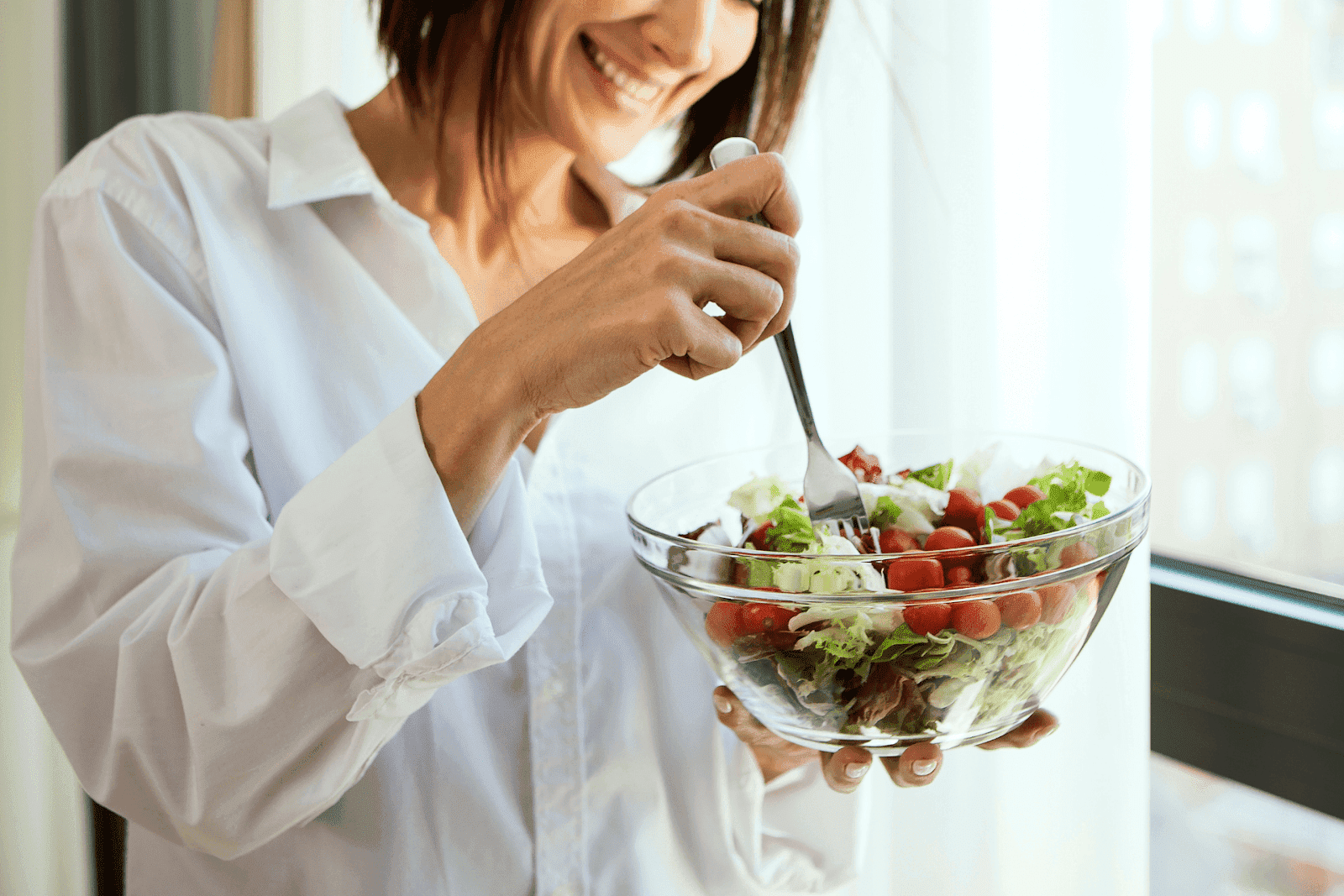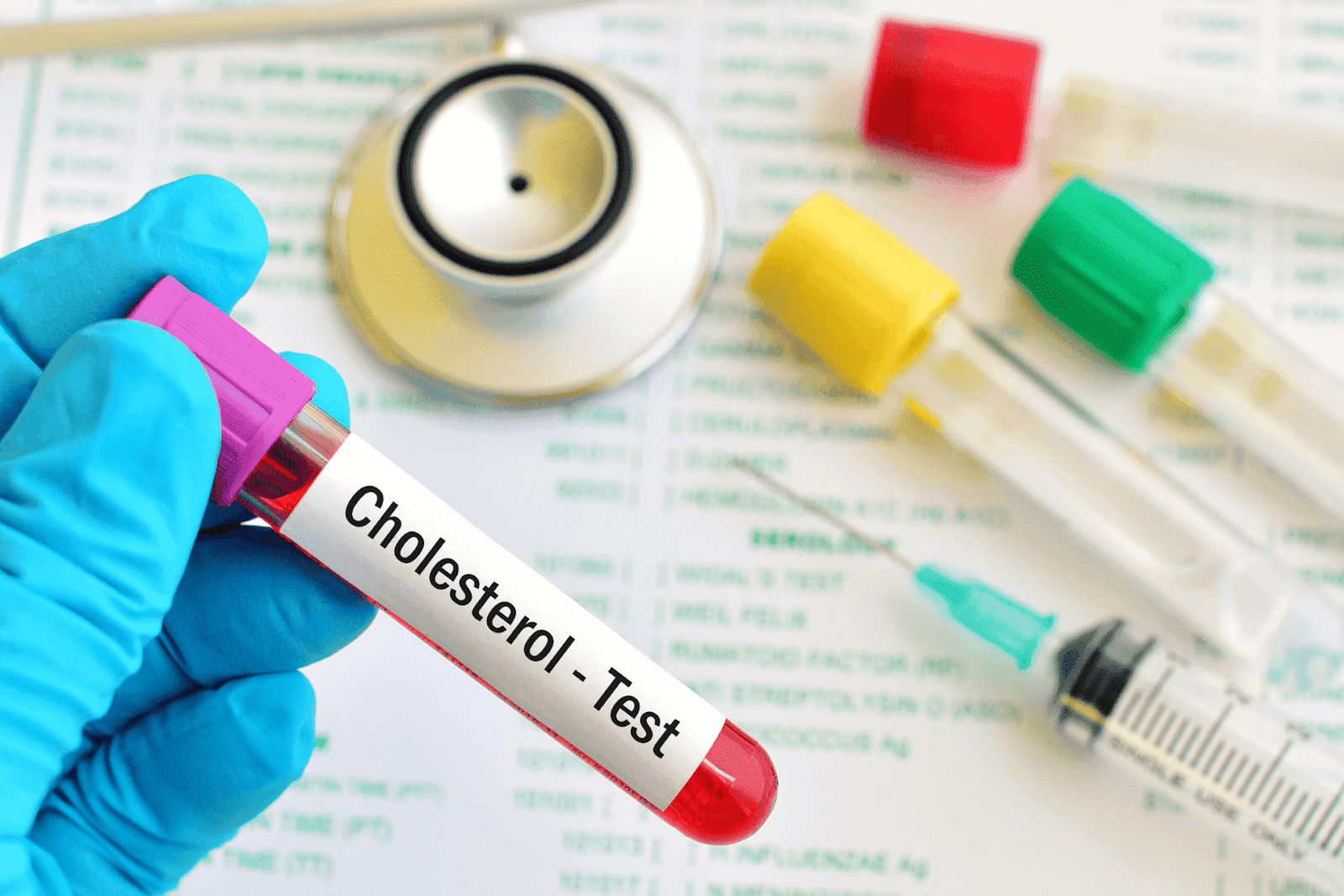What to Eat the Night Before a Cholesterol Test
Preparing for a cholesterol test can feel a bit daunting, especially when it comes to knowing what to eat the night before. Your diet leading up to the test can influence the [...]
Read More
Medically reviewed by Alan Lucks | MD, Alan Lucks MDPC Private Practice - New York on October 14th, 2025.
Fasting 9-12 hours before your blood draw is essential because eating can elevate triglycerides by up to 20-30% within 2-4 hours, skewing results.
Avoid alcohol completely for 24 hours prior to testing, as even moderate consumption can raise triglyceride levels for up to 24 hours after your last drink.
Foods high in saturated fat (fried items, processed meats, full-fat dairy) can temporarily increase LDL levels by 10-15% and should be avoided the night before.
Skip intense workouts 24 hours before testing—vigorous exercise can temporarily lower total cholesterol by 5-10% while raising HDL, affecting baseline measurements.
Your final meal should emphasize lean protein (4-6 oz), complex carbohydrates, and vegetables with minimal added fats to prevent lipid fluctuations during the fasting period.
Preparing for a cholesterol test can feel a bit daunting, especially when it comes to knowing what to eat the night before. Your diet leading up to the test can influence the results, so understanding the best foods to consume and which to avoid is essential. This article will guide you through the ideal pre-test meal choices to help ensure accurate cholesterol readings and support your overall heart health.
Cholesterol tests measure the levels of different types of cholesterol and fats in your blood, including LDL (low-density lipoprotein), HDL (high-density lipoprotein), and triglycerides. These measurements provide valuable insights into your cardiovascular health and risk for heart disease.
Many cholesterol tests require fasting for 9 to 12 hours before the blood draw to avoid the influence of recent food intake on triglyceride levels. However, what you eat the night before can still impact your fasting blood lipid profile. Eating a balanced meal the evening prior helps stabilize your blood sugar and lipid levels, making your test results more reliable.
 How Food Affects Cholesterol Test Results
How Food Affects Cholesterol Test ResultsFoods high in saturated fats and sugars can temporarily elevate triglyceride levels and LDL cholesterol. Consuming heavy, fatty meals late at night might skew your test results, leading to inaccurate assessments and potentially unnecessary treatment plans. Conversely, a healthy, balanced meal can help your body maintain stable lipid levels overnight.
Incorporating foods rich in omega-3 fatty acids, such as salmon or walnuts, can be particularly beneficial before a cholesterol test. These healthy fats can help lower triglyceride levels and promote higher HDL cholesterol, which is often referred to as the "good" cholesterol. Additionally, fiber-rich foods like oats, beans, and leafy greens can aid in cholesterol management by binding to cholesterol in the digestive system and helping to eliminate it from the body. Therefore, planning your pre-test meal with these considerations in mind can lead to more accurate and favorable test outcomes.
Moreover, hydration plays a crucial role in preparing for a cholesterol test. Drinking plenty of water the day before can help maintain blood volume and improve the quality of the blood sample. Avoiding alcohol and excessive caffeine is also advisable, as these substances can dehydrate the body and potentially interfere with lipid levels. By taking these dietary and lifestyle factors into account, individuals can significantly enhance the reliability of their cholesterol test results, paving the way for better health management and informed discussions with their healthcare providers.
Choosing the right foods the evening before your test is crucial. Aim for a meal that is low in saturated fats, moderate in healthy fats, and rich in fiber and nutrients. Here are some guidelines and food suggestions to help you prepare.
Lean proteins such as grilled chicken, turkey, or fish are excellent choices. These options provide essential amino acids without the saturated fat found in red meats. For vegetarians, plant-based proteins like lentils, chickpeas, or tofu are nutritious alternatives that support heart health. Additionally, incorporating fatty fish like salmon or mackerel can provide omega-3 fatty acids, which are known to help lower triglyceride levels and improve overall heart health.
Whole grains such as brown rice, quinoa, or whole wheat bread are rich in fiber, which helps reduce LDL cholesterol. Fiber slows the digestion and absorption of fats and sugars, promoting more stable blood lipid levels. Avoid refined grains like white bread or white rice, which can cause blood sugar spikes. Consider adding a side of oatmeal or a whole grain salad, as these can be both filling and beneficial for your cholesterol levels.
Vegetables are packed with vitamins, minerals, and antioxidants that support cardiovascular health. Leafy greens, broccoli, carrots, and bell peppers are all excellent choices. They are low in calories and fat, making them ideal for a pre-test meal. You might also want to include cruciferous vegetables like Brussels sprouts and cauliflower, which have been shown to have cholesterol-lowering properties due to their high fiber content and unique phytochemicals.
Incorporate small amounts of healthy fats from sources like olive oil, avocados, nuts, and seeds. These fats can help improve your HDL cholesterol, the "good" cholesterol, without negatively impacting your LDL levels. A drizzle of olive oil on your salad or a handful of walnuts as a snack can be a delicious way to include these beneficial fats in your diet.
Fried and fatty foods: Avoid fried chicken, fast food, and dishes heavy in butter or cream.
High-sugar desserts: Skip cakes, cookies, and sugary drinks that can spike triglycerides.
Alcohol: Alcohol can raise triglyceride levels, so it’s best to abstain before your test.
Red meats and processed meats: These are typically high in saturated fats and can elevate LDL cholesterol.
Additionally, be mindful of your portion sizes and try to eat your last meal at least 12 hours before your test. This fasting period is essential for obtaining accurate cholesterol readings. Staying hydrated with water is also important, as it helps maintain optimal bodily functions and can aid in digestion. Avoiding caffeine and carbonated beverages the night before can further ensure that your body is in the best possible state for the test.
To make your meal planning easier, here are some heart-healthy dinner ideas that align with the guidelines above:
Grilled salmon with quinoa and steamed broccoli: Salmon is rich in omega-3 fatty acids that support heart health.
Roasted chicken breast with brown rice and a mixed green salad: A balanced meal with lean protein and fiber.
Vegetable stir-fry with tofu and a side of whole-grain noodles: A flavorful, plant-based option.
Lentil soup with whole wheat bread and a side of steamed carrots: High in fiber and protein, low in fat.
Besides eating the right foods the night before, consider these tips to ensure your cholesterol test results are as accurate as possible:
Most cholesterol tests require fasting for 9 to 12 hours, meaning no food or drinks except water. Confirm with your healthcare provider whether fasting is necessary for your specific test.
Drinking water before your test helps keep your veins accessible for blood draws and supports overall health. Avoid sugary or caffeinated beverages before the test.
Strenuous physical activity can temporarily affect your cholesterol and triglyceride levels. It’s best to avoid intense workouts the day before your test.
Certain medications and supplements can influence cholesterol levels. Inform your healthcare provider about any drugs you are taking to determine if you should pause them before testing.
Managing your cholesterol and understanding your test results is easier than ever with modern telehealth services. Doctronic.ai offers convenient access to medical advice and telehealth visits, allowing you to discuss your cholesterol concerns with licensed doctors from the comfort of your home.
Doctronic.ai provides affordable and accessible telehealth consultations 24/7 across all 50 states. Whether you have questions about preparing for your cholesterol test, interpreting your results, or managing your heart health, their AI-powered platform and real doctors can guide you every step of the way.
 Why Choose Doctronic.ai?
Why Choose Doctronic.ai?Doctronic is revolutionizing healthcare by combining advanced AI with personalized medical expertise. Their AI doctor synthesizes the latest peer-reviewed medical research to provide accurate, up-to-date information quickly. Plus, you can have video visits with real doctors for less than $40, anytime you need.
With over 10 million users, Doctronic.ai is trusted by many for fast, smart, and personal healthcare. Visit Doctronic.ai today to experience primary care powered by AI and get the support you need for your cholesterol testing and beyond.
Eating the right foods the night before a cholesterol test plays a significant role in ensuring accurate results. Focus on a balanced meal rich in lean proteins, whole grains, vegetables, and healthy fats while avoiding fried, fatty, and sugary foods. Remember to fast as instructed, stay hydrated, and avoid strenuous exercise before the test.
For personalized guidance and convenient medical support, consider using telehealth platforms like Doctronic.ai. They combine cutting-edge AI with real doctors to help you navigate your health journey with confidence.
Taking these steps will help you get the most accurate cholesterol readings, empowering you to make informed decisions about your heart health.
As you prepare for your cholesterol test, remember that Doctronic is here to support you every step of the way. With our AI-powered platform, you can receive immediate, personalized advice on managing your cholesterol and maintaining heart health. Experience the most modern medicine with our free AI doctor visits, and if needed, follow up with a convenient telehealth video visit with one of our doctors. Take advantage of limitless patience for patients and quality care that's just a click away. Skip the line. Talk to an AI Doctor Now, for free.
Plan your last meal 12 hours before your appointment with lean proteins, whole grains, and vegetables while avoiding alcohol, fried foods, and intense exercise for 24 hours prior. Proper preparation ensures your results accurately reflect your baseline lipid levels rather than temporary dietary effects. If you have questions about pre-test preparation or understanding your results, Doctronic can provide personalized guidance.
Preparing for a cholesterol test can feel a bit daunting, especially when it comes to knowing what to eat the night before. Your diet leading up to the test can influence the [...]
Read More